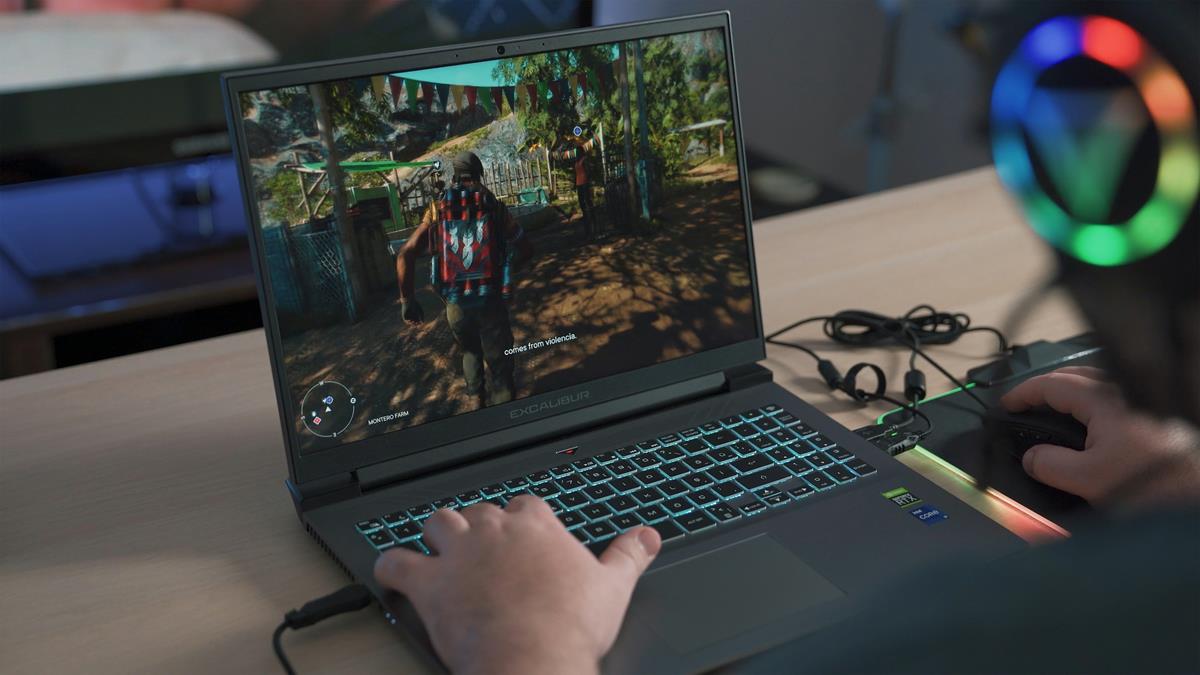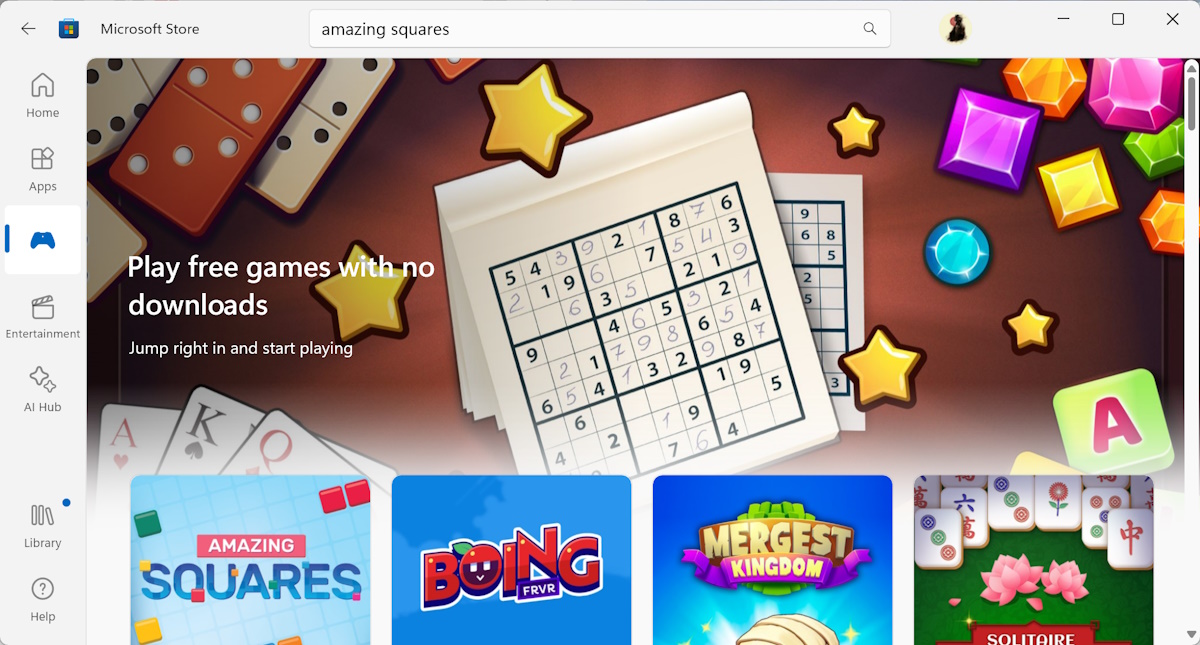ChatGPT vs Bing vs Google Bard: Who is leading the AI war?

In today's digital age, AI tools have become increasingly popular in assisting users with human-like responses. Among the leading AI language models, we have ChatGPT, Bing, and Google Bard, developed by OpenAI, Microsoft, and Google respectively. Each model possesses its own set of strengths and limitations, making the choice of the most helpful AI contingent upon the specific task or inquiry at hand.
In this article, we will delve into the disparities between these three prominent language models, aiding you in making an informed decision about which one is most advantageous to you.
The rise of AI in search engines
Artificial intelligence has experienced a meteoric rise across various domains in recent years. One of its most prevalent applications is in search engines, where AI-powered tools are employed to assist users in searching for information, answering questions, and receiving personalized recommendations.
At the forefront of this technological advancement are three notable AI tools: ChatGPT, Bing, and Google Bard. Each of these tools offers distinct features and capabilities, catering to the diverse needs of users.
ChatGPT
ChatGPT, developed by OpenAI, is an AI language model founded on the GPT-3.5 architecture, comprising multiple layers of artificial neural networks. Its primary function revolves around engaging in conversations with users, addressing their queries, and providing information on a wide array of topics. ChatGPT has garnered an active user base of approximately 100 million.
To train ChatGPT, a vast corpus of text from the internet is utilized as its training data. This data undergoes tokenization, which involves breaking down the text into individual tokens such as words or punctuation marks. It is important to note that the training data is unlabeled, allowing the model to discern patterns and relationships within the text without explicit labels or annotations.
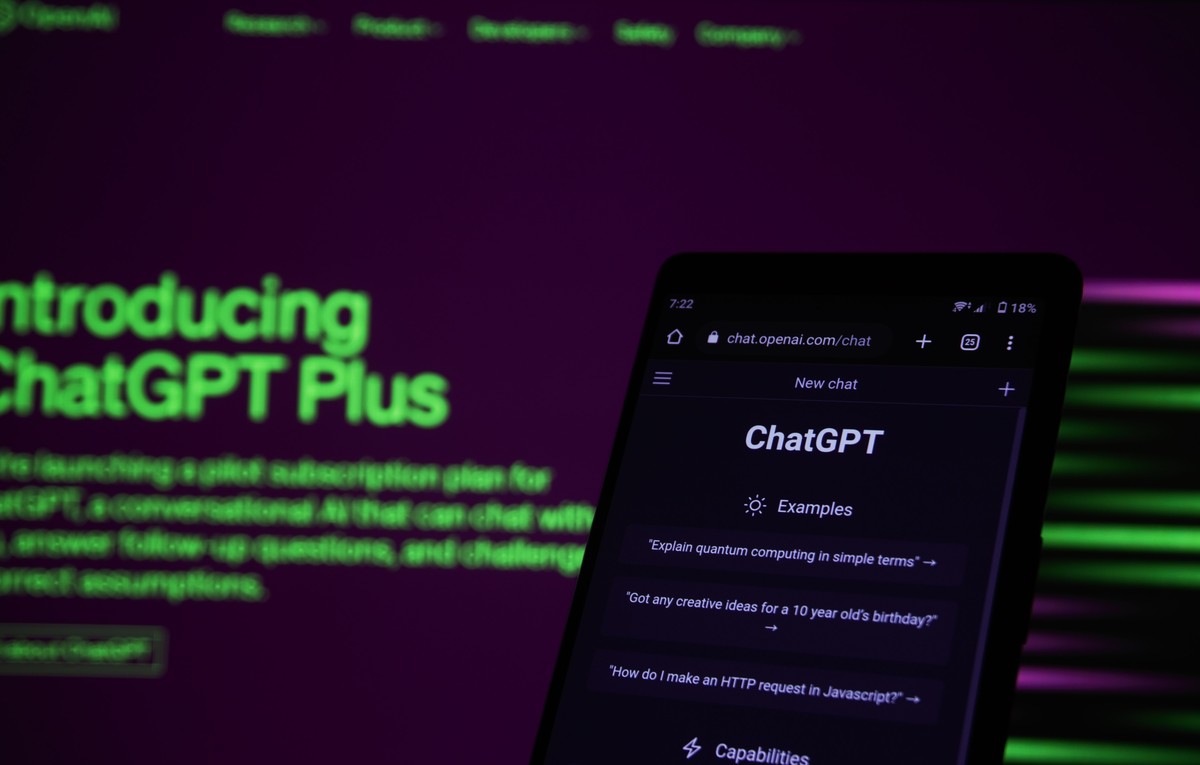
Accessing ChatGPT is a seamless process via a web-based interface, enabling users to initiate conversations with the tool effortlessly. This AI model proves particularly useful in tasks requiring natural language processing, including customer service, technical support, and personal assistance.
However, ChatGPT does possess certain limitations. Although it can provide information on a diverse range of topics, its responses may not always be as accurate as those generated by a search engine like Bing. Moreover, when confronted with complex or technical queries, ChatGPT might encounter challenges, as its responses are derived from pre-existing data rather than real-time search results.
You can access ChatGPT here.
Bing
Bing, crafted by Microsoft, stands as a search engine employing a blend of machine learning algorithms, statistical models, and heuristics to deliver relevant search outcomes to users. With a market share of approximately 2.79% according to StatCounter GlobalStats data from April 2023, Bing has firmly established itself as one of the leading search engines worldwide.
The training data for Bing consists of diverse sources, including user queries, search results, and web pages. Bing harnesses both supervised and unsupervised learning techniques during training. In the supervised learning approach, the model is trained using labeled data, encompassing user queries and search results. On the other hand, the unsupervised learning approach involves extracting features and patterns from the textual data, enabling the model to better comprehend the semantics and context of search queries.
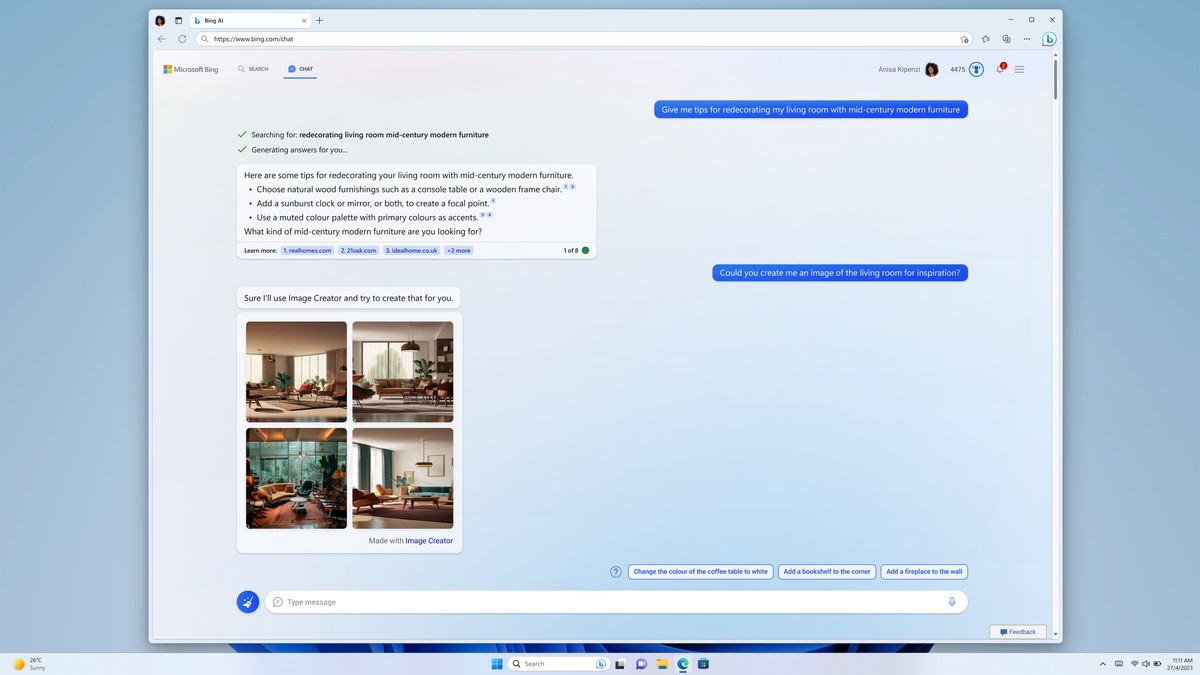
An intriguing aspect of Bing is its image search functionality, which employs computer vision to understand image content and provide more precise search outcomes. This makes Bing an excellent resource for users seeking images for presentations or other projects. Furthermore, Bing seamlessly integrates with various Microsoft products, such as Office and Windows, simplifying the process of accessing and sharing search results across different platforms. Additionally, Bing offers a unique feature called "Bing Rewards," allowing users to accumulate points through their searches, which can later be redeemed for gift cards, discounts, and other rewards.
Bing also offers a chatbot feature, capable of answering questions, providing recommendations, and executing user tasks. While it excels in simpler tasks like setting reminders and scheduling appointments, its conversational abilities are not as sophisticated as those of ChatGPT.
Google Bard
Google Bard, an AI language model developed by Google, harnesses the power of LaMDA (Language Model for Dialogue Applications). This tool primarily aims to assist users in composing poetry and song lyrics by suggesting rhymes and phrases. Although still in its beta phase, Google Bard's underlying architecture integrates neural networks, statistical models, and generative algorithms.
The training data for Google Bard comprises an extensive collection of poetry samples, encompassing classic literature, contemporary poetry, and user-generated content. The model is trained using labeled data, allowing it to learn the intricate patterns and structures inherent in various forms of poetry. This enables Google Bard to generate creative and technically proficient poetic compositions.
One remarkable feature of Google Bard lies in its user-friendly interface, accessible through a web-based platform, enabling immediate utilization. Notably, Google Bard possesses the ability to emulate the writing style of renowned authors, allowing it to generate text that resonates with the likes of Shakespeare or J. K. Rowling. Consequently, it proves to be an invaluable tool for users aspiring to write in specific styles or tones. Additionally, the AI tool exhibits utility in tasks such as text summarization and translation.
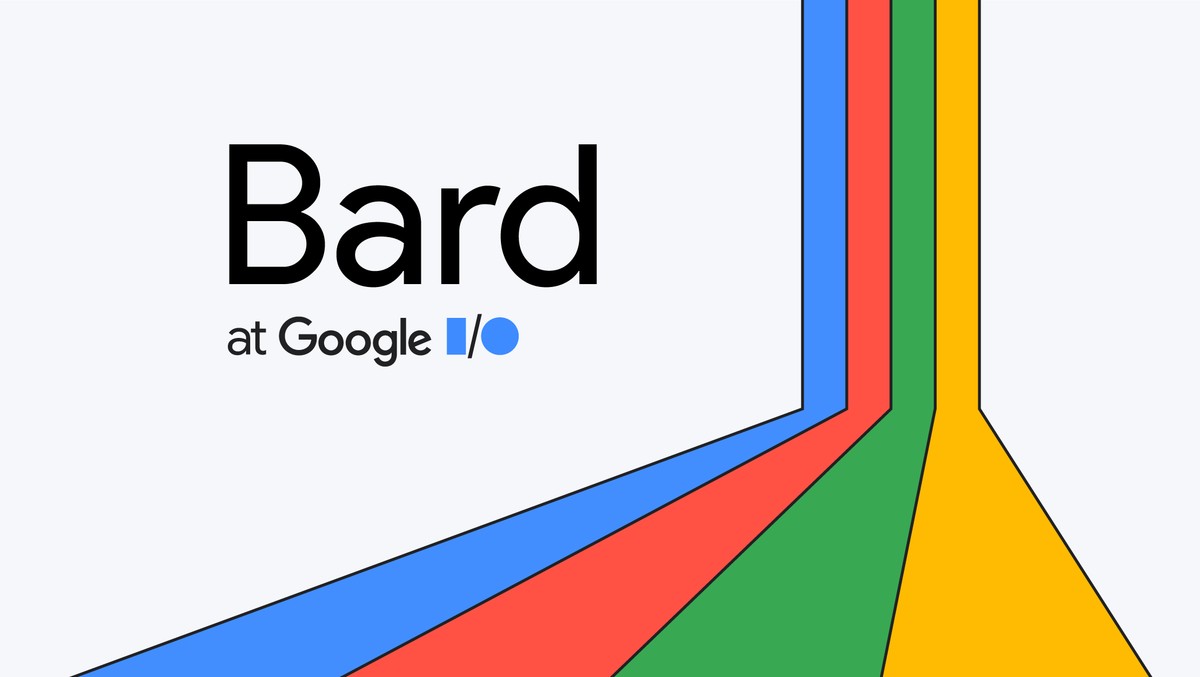
During a "Hard Fork" podcast in March 2023, Google CEO Sundar Pichai disclosed the company's plans to transition from LaMDA to a PaLM-based model (Pathways Language Model 2) in the near future. The PaLM-based model draws upon massive text and code from over 200 languages and more than 20 programming languages.
However, it should be noted that Google Bard is not suited for tasks necessitating factual information or technical expertise, and its responses may not possess the same level of sophistication as those generated by ChatGPT.
You may discover the capabilities of Google Bard via the link here.
ChatGPT vs Bing vs Google Bard
Selecting the most helpful AI tool among ChatGPT, Bing, and Google Bard hinges upon the specific task or objective at hand.
To assist you in making a decision, consider the following factors:
Type of task: Each AI tool exhibits expertise in a specific area. ChatGPT is tailored for engaging conversations, Bing serves as a search engine, and Google Bard excels in assisting with poetry and song lyrics. Consequently, evaluate the task you wish to accomplish and select an AI tool purpose-built for that particular objective.
Accuracy and relevance of results: For tasks requiring factual information or technical expertise, such as research or fact-checking, Bing may be the optimal choice. Its employment of advanced AI algorithms ensures accurate and relevant search outcomes. On the other hand, ChatGPT might not always offer the most precise information, as its responses rely on pre-existing data rather than real-time information. Google Bard, while creative, is not designed for tasks requiring factual information.
Ease of use: Take into consideration the ease of use associated with each AI tool. ChatGPT and Google Bard can be accessed through user-friendly web-based interfaces, requiring minimal technical expertise. Bing, being a search engine, can be conveniently accessed via a web browser or mobile app, making it accessible to users less familiar with AI technology. It should be noted that ChatGPT is also currently entering the phone market with mobile applications for iOS and Android.
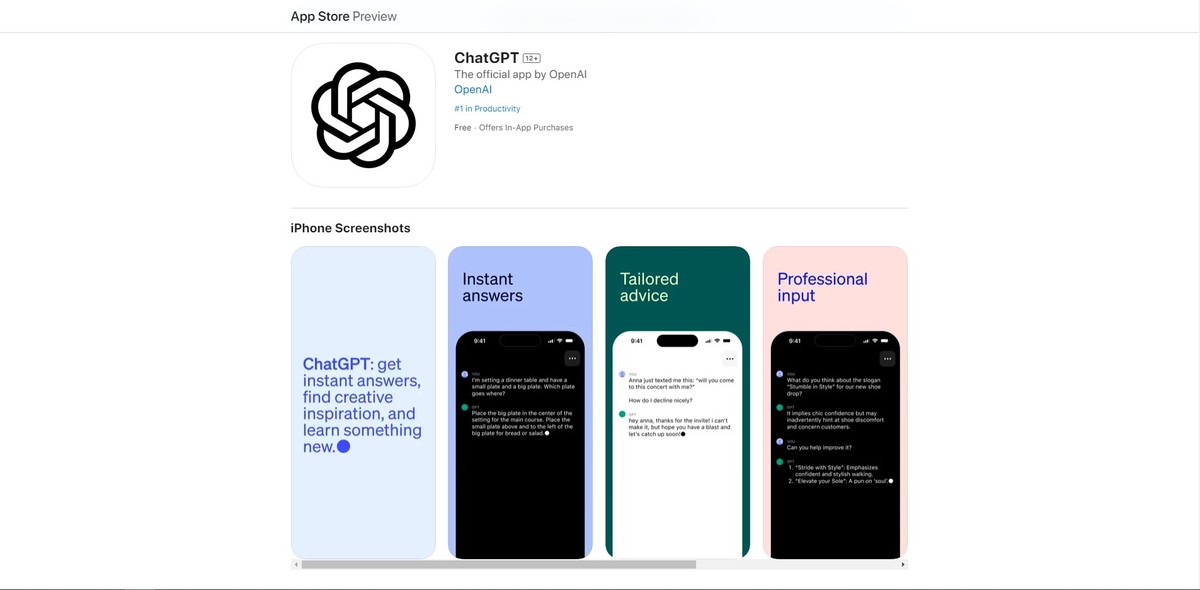
User experience: Evaluate the user experience offered by each AI tool. Does the interface exhibit user-friendliness? Are there any additional features or integrations that could prove advantageous for your task? For instance, ChatGPT can integrate with messaging apps, while Bing integrates seamlessly with Microsoft Office.
Sophistication of AI capabilities: ChatGPT stands out as one of the most sophisticated AI tools, boasting advanced natural language processing capabilities. It can sustain conversations with users and generate its own content to further the dialogue. While Bing's chatbot feature may not match ChatGPT's level of sophistication, it can still respond to queries and perform basic tasks. Google Bard, while proficient in generating creative text, may not possess the same level of sophistication as ChatGPT for tasks requiring advanced AI capabilities.
The selection of the most helpful AI tool ultimately rests upon your specific requirements. If you seek interactive and creative text generation, ChatGPT may prove ideal. On the other hand, if your aim is to swiftly retrieve information from the web, Bing or other search engines may be more suitable. It is crucial to assess the strengths, limitations, and real-world performance of each AI system to make an informed decision.
Advertisement
